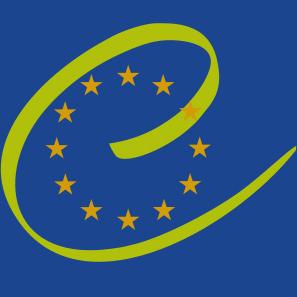The debate on the forthcoming Ukrainian OSCE chairmanship held at the DGAP think tank in Berlin nicely illustrates the power of Europeanization: the agenda of the holder of the rotating EU Council Presidency, one of the most important of international organizations, is shaped not unilaterally, but in conjunction with German experts and diplomats, who are arguably among the most influential policymakers in today’s Europe.
For example, German speakers at the event did not hide their intention to influence the Ukrainian OSCE agenda. Herbert Salber, Director for Security Policy in the German Foreign Office, assumed that as soon as NATO leaves Afghanistan, there will be more room for the OSCE in Central Asia—and Ukraine ought to be concerned about this.
Germany also wants to use the opportunity for engaging Ukraine in reaching solutions for Transniestria and Nagorno-Karabakh, as well as in contacts with the new Georgian government. This resembles the German attempts a year ago to lure Poland, which held the EU Council Chairmanship, to be more involved in the Caucasus and other volatile regions.
Yet, Leonid Kozhara, the Deputy Speaker for Foreign Policy in the Ukrainian Parliament, changed the tone of DGAP discussion when he said: “We welcome Germany’s role in streamlining the agenda of the Ukrainian OSCE chairmanship, but let’s start with the Association Agreement first.” He went on to say that Russia has its own voice in the debate, suggesting that Ukraine should push for restarting the debate on the European Security Treaty as proposed by Moscow some time ago.
The implication of his remarks were evidently political: a Ukrainian politician called on Germany to make a political decision of ignoring what in the mildest terms can be dubbed selective justice, and alluded that Ukraine itself has a political alternative to heeding Germany (e.g., Russia).
Kozhara added, “We are under strong pressure from Moscow, which won’t wait until we implement reforms—Russia wants us now and in full. If this succeeds, a new version of the USSR can come true.” This view was supported by Vyacheslav Yatsiuk, Head of the OSCE Task Force at the Ukrainian Foreign Ministry), when he said that by procrastinating the Association Agreement, the EU, in fact, encourages Russia’s activities toward Ukraine.
Yet Kozhara himself certainly didn’t think of his words as rendering political effects. He called for “less politics and more economic pragmatism.” He tried to present a non-political view on Europe by the “ordinary people in Ukraine” as the most authentic and trustworthy. For them, he claimed, the EU is largely associated with closed markets and visa formalities. Kozhara calls the EU restrictions an example of politicization, which is definitely a pejorative word in the Ukrainian lexicon.
Yet if Ukrainian society (including business circles) do not like the EU, why bother? Why does the government always demonstrates its commitments to the European choice? There will be soon be a declaration by the Ukrainian parliament that seeks the nation to sign the Association Agreement in the nearest future. Is this a cry from the heart?
There was another controversial facet of Kozhara’s speech. He presumed that it is the Germans who ought to think over what went wrong with EU–Ukrainian relations. He believes that there are no impediments for signing the Association Agreement from the Ukrainian side. The Ukrainian government took all the steps it had to for legal approximations with the EU. They feel that the Euro-2012 football tournament was a proof of Ukraine’s ability to organize mega-events, while the October 2012 parliamentary election was a new step toward democracy.
Reaction from the audience followed immediately, such as: “you imply that what Ukrainian did for reforms is a gift to Europe, but you should do these irrespective of EU expectations.”
To many conference participants, obstacles to the Association Agreement from the Ukrainian side abound, above all its selective, Soviet-style justice system.
Reinhold Brender, of the European External Action Service, reminded everyone that the preliminary findings of the 2012 electoral observers were critical.
Thus, after these exchanges the discussions went explicitly political. Arguably, it was bound to, due to the nature of the topic.
Valery Chaliy from the Razumkov Center admitted that the choice his country faces is not economic, but civilizational. Western Ukraine would never agree with integration with Russia, which would mean instability at the EU border. The Eurasian choice is almost for free, while the European scenario demands political efforts.
The situation looks political from the European side as well. One cannot but agree with Ukrainian experts that the EU lacks a strategic vision for its relationship with Ukraine. This might prompt a Belarusian scenario of isolation and conservation of an authoritarian regime.
The conceptual core of the disagreements between Germany and Ukraine boils down to the contradictions between the “thick” and “thin” conceptions of international society. The former presupposes that actors are deeply embedded in normative structure that, to some extent, limit their freedom of action, while the later leaves institutional commitments at a minimal level for the sake of more room for individual policies. Pleas for pragmatism from Kyiv could resonate only within the concept of a “thin” international society, which the EU does not share. Of course Germany can consider pragmatic options, but it is heavily constrained in its policies toward Eastern Europe by deeply normative considerations, and can’t easily break with them, even for the sake of economic rationales.
Andrey Makarychev is a Guest Professor at the Free University of Berlin, blogging for PONARS Eurasia on the Russia-EU neighborhood.









